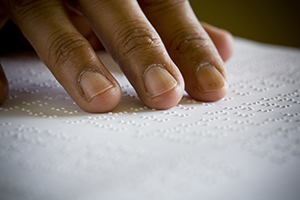Latest News Archive
Please select Category, Year, and then Month to display items
12 October 2020
|
Story Dr Cindé Greyling
|
Photo Supplied
 Exercise and nutrition can work wonders for your mental health – you don’t even have to ‘feel like’ or ‘enjoy’ moving around and eating well for it to work – it does its thing anyway.
Exercise and nutrition can work wonders for your mental health – you don’t even have to ‘feel like’ or ‘enjoy’ moving around and eating well for it to work – it does its thing anyway.
Nowadays, people talk about mental health like it is the common cold – which is good! But do you know what it really means? Being mentally healthy does not only refer to the absence of a mental illness but includes your emotional and social well-being. One would almost want to add physical well-being too, since a healthy body does indeed support a healthy mind. However, since so many people consider themselves ‘mental health experts’, some myths have been sold as truths.
Myth #1 – You are doomed.
Nope. Never. You are never doomed. There is always help. Mental-health therapies range from self-help, talk therapy, medication, to hospitalisation in some cases. Somewhere on this spectrum of treatments, there will be something that works for you. But you must be willing to get the help and do the work. For starters, exercise and nutrition can work wonders – you do not even have to ‘feel like’ or ‘enjoy’ moving around and eating well for it to work – it does its thing anyway.
Myth #2 – It won’t affect you.
It may. Research suggests that one in five people may suffer from a mental illness at some point in their lives. Being well now does not mean that it will stay that way. Biological and environmental factors both impact your mental health. Hopefully not, but at some point, you may experience an event that affects your mental health.
To remain integrated in a community is always beneficial
for anyone suffering from a mental or physical condition.
Myth #3 – Someone struggling with mental health must be left alone.
Hardly! To remain integrated in a community is always beneficial for anyone suffering from a mental or physical condition. You do not need to fix them, but to remain a friend. Continue to invite them, even if they decline. Do not judge, and do not try to understand. Just stay around.
Go and be kind to yourself, and to those around you.
First Rand Foundation contributes funding towards students with disabilities
2017-01-02

Photo: iStock
Bursary funding for eight students with disabilities at the University of the Free State was recently approved by the First Rand Foundation. The grant of R2 497 440 will be paid over three years: R800 000 (2016/17), R824 000 (2017/18), and R873 440 (2018/19).
This grant from the First Rand Tertiary Education Fund is a result of the negotiations between the UFS Office for Institutional Advancement and the First Rand Foundation (FRF).
Qualifying students with disabilities will be encouraged to apply for bursaries according to criteria and requirements set by the First Rand Foundation. The selection process will be handled by a panel from the UFS. The Centre for Universal Access and Disability Support (CUADS) at the UFS will be instrumental in the process of identifying students with disabilities who meet the criteria and requirements for funding.
CUADS already have a system in place to support students with disabilities in their studies and during exams. Students also have access to specialised exam and test venues for alternative test and exam procedures, as well as computer facilities.
Specialised support services include an amanuensis (scribe) service during tests and exams, accommodating extra time, individual tutor sessions provided in collaboration with the Centre for Teaching and Learning, South African Sign Language interpreter coordination, provision of accessible study material, and individual disability support.
“The centre aims to ensure that the university increasingly becomes a universally accessible environment that is welcoming and accepting to people with diverse abilities.”
According to Martie Miranda, Head of CUADS, the centre aims to ensure that the university increasingly becomes a universally accessible environment that is welcoming and accepting to people with diverse abilities. “Therefore disability awareness training and advocacy within the UFS, and specifically among staff members, is one of our priorities,” she said.
According to Thandeka Rantsi from the FRF, the company will furthermore support students in CUADS with regards to the needs ensuing from the #feesmustfall protests. “Exactly R34 000 was approved by the FRF for 14 students towards residence and meal expenses, as well as scribe and reader assistance during additional assessments,” she said.